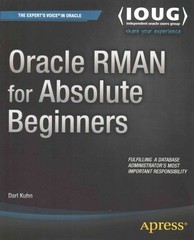Question
PYTHON MULTI CHOICE 1) What is wrong with the following code snippet? mystery(10, 2) def mystery(num1, num2): result = num1 ** num2 return result nothing,
PYTHON MULTI CHOICE
1) What is wrong with the following code snippet?
mystery(10, 2) def mystery(num1, num2): result = num1 ** num2 return result
| nothing, it will return 20 |
| nothing, it will return 100 |
| a variable must be used to store the result of the function call |
| the function must be defined before the statement that calls it |
2) Consider this function definition:
def some_rec_func(n): if (n < 0): return -1 return some_rec_func(n + 1)
This function has the following problem -- or none (only one correct choice):
| It will always produce an infinite recursive call to itself resulting in a run-time error.
|
| It will always return the same number no matter what is passed in as an argument from the main function.
|
| Nothing is wrong;
|
| It will sometimes return a -1 without error, and other times produce an infinite recursive call to itself resulting in a run-time error. |
3) Which are true about instance variables (attributes) of a class
(check all that apply):
| They should usually be defined and assigned in the __init__() method (constructor) of that class. |
| They should be private so that only the objects methods can directly access them. This protects the objects data attributes from accidental corruption.
|
| Member instance methods of the same class must use self. (or, whatever the first formal parameter is, followed by the dot) before their names in order to access them.
|
The statements
card1 = "hi mom" card2 = 3 card3 = Card() my_card = card3 card1 = Card()
will cause how many Card objects to be instantiated? (only one correct choice):
| 1 |
| 2 |
| 3 |
| 4 |
| none |
4) A mutator's job is to (check all that apply):
| protect instance or class data |
| return the value of the mutator's associated member data to the client. |
| set value(s) of data as requested by the client, if the value(s) the client supplies (supply) is (are) deemed acceptable by the class designer. |
| print errors if bad data is passed.
|
5) Which statements are true about the built-in Python tuple data type?
(check all the are true)
| - tuples are mutable. |
| - Elements of a tuple can themselves be mutable types. |
| - If some_var is a tuple that has exactly 10 items in it, the following two variable names reference the same object: some_var[8] and some_var[-2] |
Step by Step Solution
There are 3 Steps involved in it
Step: 1

Get Instant Access to Expert-Tailored Solutions
See step-by-step solutions with expert insights and AI powered tools for academic success
Step: 2

Step: 3

Ace Your Homework with AI
Get the answers you need in no time with our AI-driven, step-by-step assistance
Get Started


